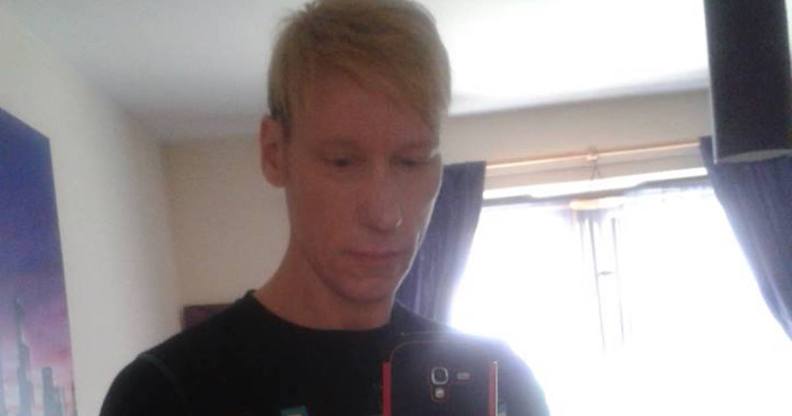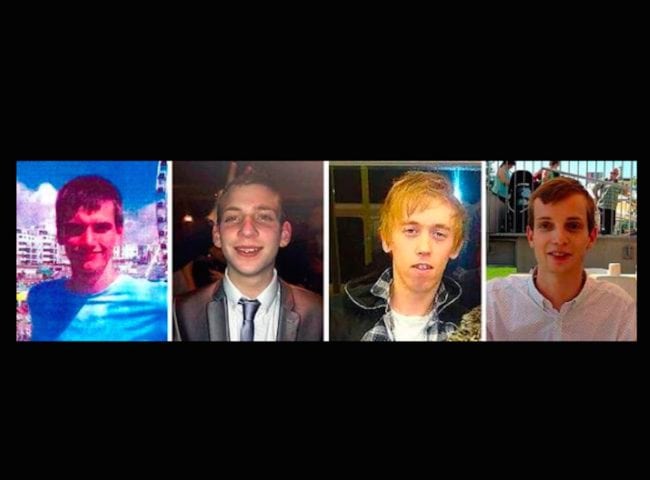Families of men murdered by Grindr serial killer Stephen Port crowdfund to pay legal costs

Stephen Port was found guilty of multiple counts of murder and sexual assaul in 2016 and received a whole life order. (Metropolitan Police)
The families of three men killed by Grindr serial killer Stephen Port are fundraising to pay for the legal costs for a new inquest into their deaths.
Port, of Dagenham, East London, was jailed for life in November 2016 for the murders of Anthony Walgate, Gabriel Kovari, Daniel Whitworth, and Jack Taylor between June 2014 and September 2015.
The former chef searched for the young gay men on hook-up apps before raping them and giving them fatal overdoses of the GHB drug.
Now, the families of Walgate, Whitworth and Taylor are crowdfunding to pay for a fresh inquest into the four men’s deaths.
It comes after a court quashed two previous inquests into the deaths of two of the men, Whitworth and Jovari, which ruled an open verdict.
“We believe that their deaths could have been avoided if the police had done their jobs instead of dismissing our boys as drug-taking gays,” the CrowdJustice page reads.
“We now need help to get the best legal representation possible at the inquests into the deaths. We feel the police let us down before and we don’t want to be let down again. This is our chance to get answers and accountability.”
The page states that the £10,000, of which more than £3,000 has been raised so far, would not pay for all the legal costs but added that it would “be a great help.”
A pre-inquest hearing was held on August 14, with a second pre-inquest review set to be held in November.
According to the fundraiser, the new inquest into the deaths of the four victims will be held in 2019.

The four men were murdered by Stephen Port between June 2014 and September 2015. (Justice For Our Murdered Boys)
In July, officers under investigation for their response to the murders reportedly refused to answer questions in interviews with the police watchdog.
All but one of seventeen Met Police officers have declined to freely answer questions from the Independent Office of Police Conduct (IOPC) which is conducting a probe into how Stephen Port’s murders were handled, the BBC reports.
The sixteen officers used their right to answer “no comment” in interviews and instead submitted prepared statements.
One officer has since resigned from the force, meaning there would be no means of sanctioning them even if they were found to have failed in their handling of the case.

Officers from the Met Police are being investigated by the police watchdog for failings in the original investigation. (Stephen Port/Facebook)
In a statement to the BBC, IOPC Regional Director Sarah Green said: “Our investigation is nearing completion, and I will need to consider the final report carefully before coming to any view on its findings.
“We continue to keep the families of Stephen Port’s victims, and the officers under investigation updated on our progress.”
The organisation interviewed seven of the officers under gross misconduct notices and the other ten of them under misconduct notices.
After the death of Anthony Walgate, Port was charged with perverting the course of justice for filing a false police report.
The killer had told authorities he found Anthony Walgate’s body lying unconscious in the street, but police later discovered he had hired him via an online gay escort service.
Yet, despite Port being known to police, a series of blunders meant officers failed to make connections to the subsequent deaths of Gabriel Kovari and Daniel Whitworth, who were killed within weeks of each other in August 2014.
The bodies of Gabriel Kovari and Daniel Whitworth were discovered in St Margaret’s Churchyard, Barking, by the same woman walking her dog only yards from Port’s flat, yet police did not treat the deaths as suspicious.
Police took a ‘suicide’ note found in Whitworth’s hand—written by Port—which said that he had accidentally killed his lover, Gabriel Kovari, at face value. In fact, the two victims did not know each other.
The blunder left the serial killer free to kill again, with the murder of Jack Taylor, who was also found in the churchyard in September 2015.
Police were finally pressured into investigating the spate of deaths after friends and family of the victims noticed similarities between the cases.

